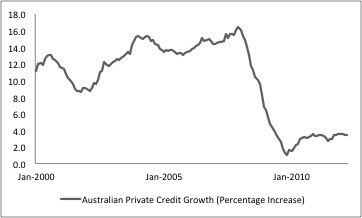Here is great short video interview with the Wall Street Journal explaining why 10 year US Fed bond yields are so low…
Support me on Patreon
Do your MA in Economics at Kingston
Kingston offers a range of Economics MA degrees from heterodox, pluralistic and applied perspectives, full time and part time. Click here for more informationMinsky Funding
Login/Register
Australian Housing
Blogroll
Cartoons
Coverage
- 20070314: LateLine on the <span class="caps">US</span> Sub-Prime Crisis
- 20070314: Warning on ‘silly’ loans
- 20070815: 7.30 Report “American mortgage shock waves hit Australia”
- <span class="caps">ABC</span> <span class="caps">PM</span> on <span class="caps">US</span> Subprime Crisis
- <span class="caps">FN</span> Arena: Mortgage crunch in Australia too?
- <span class="caps">NZ</span> Reserve Bank on Regulation: <span class="caps">PM</span> May 9th 2007
- Shared Equity Loans
Debt & Asset Bubble Blogs
Podcast
RBA Watch
Relevant News Items
- 20070308: Bad debts on the rise in mortgage belt
- 20070309: Late-paid mortgages show pain in suburbs
- 20070317: Onward rolls the sub-prime story in the <span class="caps">USA</span>
- 20070815: 7.30 Report “American mortgage shock waves hit Australia”
- 20070917: How bad debt infected the world
- 7.30 Report
- Bear Stearns: Turmoil in sub-prime mortgages
- Beware of Exploding Mortgages (New York Times June 10 2007)
- Can the mortgage crisis swallow a town?
- Credit derivatives: At the risky end of finance
- First home payments hit $3000 per month
- Shared Equity Loans
- True rate of home defaults hidden
Statistics
Sub-Primes
UK
USA
User
Essential Posts
Financial Instability
Roving Cavaliers of Credit
Read Some Minsky
Monetary Profits Paradox
Are We "It" Yet?
Monetary Multisectoral ModelThe New Depression
"No-one saw this coming"?
Why the Crisis is not over
Deleveraging with a twist
Bernanke doesn't understand the Great Depression
The Case Against BernankeAustralian Housing
Rescuing the Bubble
Australian house prices
Competition No Panacea
House Prices & Banks I
House Prices & Banks IIVideo overview
Lectures on Endogenous Money
Debt and Australian housing
BBC HARDtalk Interview
INET Interview on why I saw "It" comingDebunking Economics II
Disclaimer
This site does not give personal financial advice. The focus of this blog is economic analysis, and how you interpret this with respect to your own financial decisions is entirely up to you.
Steve Keen, Debtwatch, and any employees or associates will not be held liable for any losses resulting from decisions taken by any individual or entity as a consequence of reading materials on this blog.
Membership or sponsorship of this blog does not constitute purchasing any product service apart from those listed in the membership and sponsorship conditions.
-


